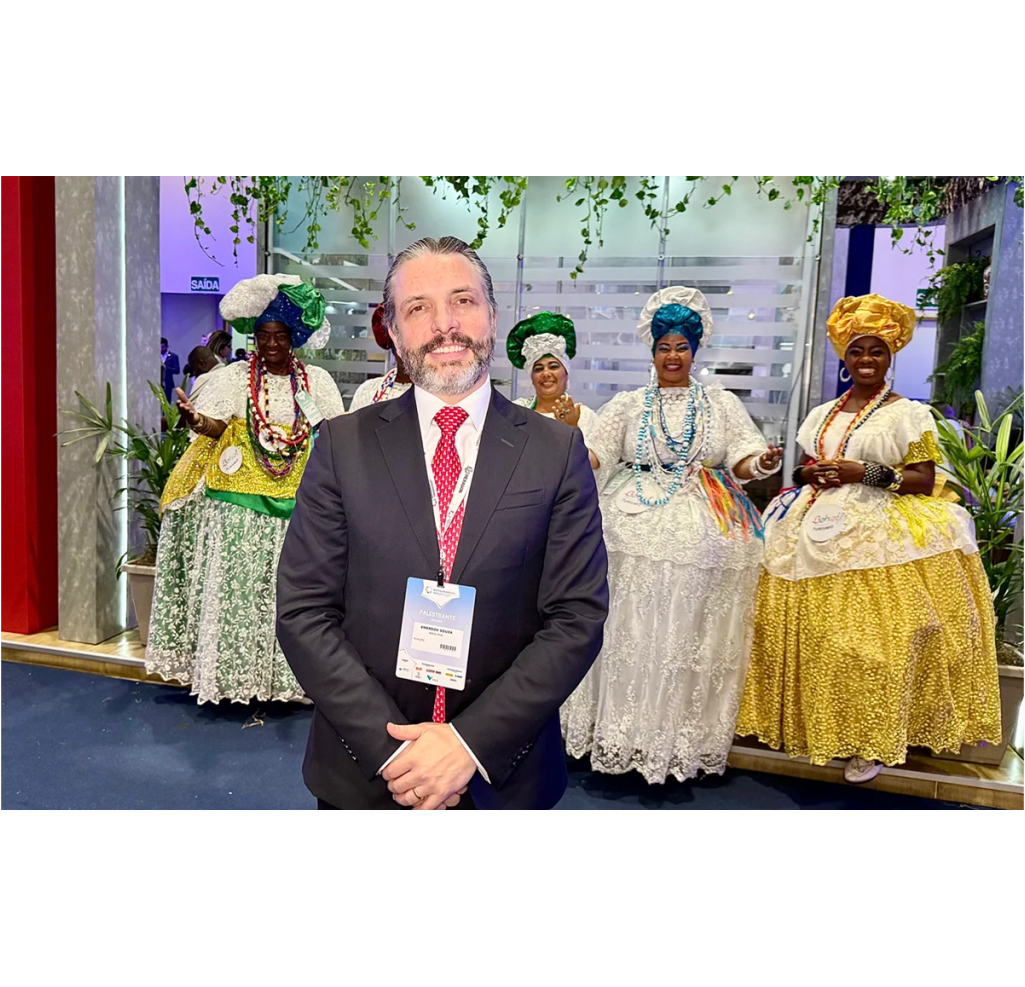Emerson Souza Highlights Bahia’s Role as the New Green Iron Hub of the Americas and Projects Decarbonization of the Steel Industry
05/11/2025

Brazil Iron Vice President stated that Exposibram marks a decisive moment for the region’s economic and technological development.
Authors: Iago Bacelar and Osvaldo Lyra | October 28, 2025
Brazil Iron’s Vice President, Emerson Souza, on Monday (27) highlighted Bahia’s potential to lead the transition to sustainable mining in Brazil and around the world. During the opening of the 2025 Brazilian Mining Expo & Congress (Exposibram) at the Salvador Convention Center, he also outlined the company’s investment of more than US$ 5 billion, which aims to turn the state into a global reference in green iron production—an essential technology for decarbonizing the steel industry.
On the occasion, the Brazil Iron executive also stated that Exposibram marks a decisive moment for the region’s economic and technological development. According to him, the presence of major industry players and political representatives in Salvador reinforces Bahia’s growing prominence in the international mining landscape.
“We are experiencing a turning point in Bahia’s development from the perspective of mining. It’s an opportunity for the state to show Brazil and the world its mineral potential,” said Emerson.
Brazil Iron’s project will be implemented in the south-central region of Bahia, covering the municipalities of Piatã, Abaíra, and Jussiape, in the Chapada Diamantina. In its first phase, the operation will extract and process iron ore, converting it into pellet feed that will be transported to the port area, where new industrial plants will give rise to what is known as green iron.
The product, technically known as HBI (Hot Briquetted Iron), is considered a milestone in the steel industry’s energy transition. According to Emerson, this innovation will make it possible to replace coal-fired furnaces with electric furnaces powered by clean energy, drastically reducing greenhouse gas emissions.
“The steel industry will be able to abandon coal furnaces, which produce heavy pollution and large volumes of greenhouse gas emissions, and move to electric furnaces that use clean and renewable energy,” explained the vice president.
In his assessment, this input could represent a “turning point” for the steel sector. “This is how we can achieve the decarbonization of an industry that today accounts for 8% of all greenhouse gas emissions worldwide,” said Emerson Souza.
In addition to the positive environmental impact, Brazil Iron’s project is expected to create thousands of direct and indirect jobs, increase tax revenues, and strengthen local production chains. Emerson pointed out that, despite the project’s large financial scale, its greatest legacy will be repositioning Bahia as a global hub for sustainable mining.
The vice president also emphasized that the iron ore found in the state has high concentration and quality—a factor that sets it apart from other major producers such as Australia, India, and China.
“This is the input the steel industry currently needs to achieve decarbonization. With this material that we will produce in Bahia, the state will become the first place in the Americas to manufacture this type of product,” he emphasized.